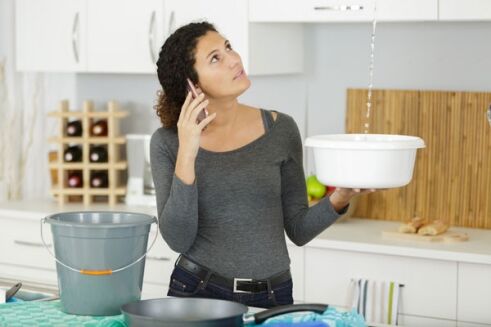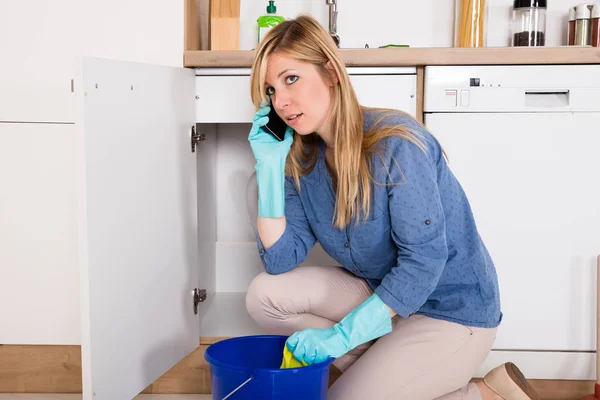Quick Solutions for Emergencies: Actions to Take Until Help Arrives
Quick Solutions for Emergencies: Actions to Take Until Help Arrives
Blog Article
They are making a few good annotation related to Plumbing Emergencies: Tips on What To Do Before in general in the content in the next paragraphs.

Pipes emergency situations can strike at any moment, causing stress and prospective damage to your home. Whether it's a ruptured pipe, a blocked drain, or a dripping faucet, knowing just how to handle the situation up until a professional plumber shows up can save you from more issues. This article gives vital emergency situation pipes suggestions to aid you reduce damage and gain back control during a pipes crisis.
Shut off the Water Supply
The very first step in any type of pipes emergency is to shut down the supply of water. For local problems, such as a dripping faucet or commode, turn off the shutoff near the fixture. When it comes to a significant leak or ruptured pipe, find your home's major water shut-off valve and transform it off instantly. Recognizing the location of these valves ahead of time can save useful time throughout an emergency.
Shut down Your Water Heater
In specific emergency situations, such as a burst pipe, it's important to shut off your water heater. This prevents overheating or damage to the system when water quits flowing. Shut off the power supply to the hot water heater (electrical or gas) and let it cool off to stay clear of potential risks.
Briefly Quit a Burst Pipe
A ruptured pipeline can lead to significant water damage in mins. To minimize the issue:
Call a professional plumbing technician right away to attend to the issue permanently.
Have an Emergency Plumbing Kit
Prepare a basic pipes emergency situation kit to handle minor problems efficiently. Your set must consist of:
Having these tools available can make a considerable distinction in your capability to handle emergencies.
Unclog Drains Safely.
A blocked drain can be an aggravating and messy issue. Here's how to tackle it:.
If these methods do not work, avoid utilizing excessive pressure, as it may intensify the clog.
Handle Overflowing Toilets.
An overflowing toilet can trigger immediate disorder. Right here's what you need to do:.
Address Small Leaks with Short-lived Fixes.
Little leaks can rapidly come to be significant issues if left uncontrolled. Use these momentary solutions until expert aid arrives:.
While these solutions aren't permanent, they can help lessen water loss and damages.
Take Care Of Frozen Pipes Thoroughly.
In chillier environments, icy pipes are a common emergency. If you think an icy pipeline:.
Know When to Call a Specialist.
While quick fixes can assist briefly, particular pipes concerns call for instant expert interest. Call a plumbing technician if:.
Immediately calling an expert ensures the problem is fixed correctly and protects against additional problems.
Prevent Additional Damage.
Taking fast activity to minimize damages can conserve you money and time over time. Right here's how:.
Final thought.
Plumbing emergency situations can be overwhelming, however with the right expertise and devices, you can handle the situation efficiently till help gets here. By turning off the water system, addressing little leakages, and using short-lived repairs, you can minimize damage and maintain your home safe. Keep in mind, these pointers are short-term services; constantly consult an accredited plumber to deal with the source of the trouble. Preparation and quick reasoning are your best allies in any type of pipes emergency situation.
8 Helpful Tips for Managing Plumbing Emergencies at Home
If your plumbing system hasn’t failed once, wait for it because almost everyone has a story to tell. Sometimes, it could be simple emergencies such as a leaking pipe, a blocked cistern, or even a big burst pipe. In situations like this, you need to have some handy tips to save you some money and from possible damages.
Take care of minor issues early.
Sometimes, you could have avoided an emergency by taking proactive measures while it was still early. Some major plumbing emergencies can be a result of an ignored minor issue. We recommend that you have items like plumbing tapes and other related items. A plumbing tape can allow you to manage minor leaks before the plumber arrives.
Cut off the water supply.
This tip is essential in almost any type of leakage problem. For problems like minor leakages in the toilet or kitchen, turn off the supply that takes water to the affected pipes. If the leakage is a major pipe, you must shut off the supply valve to the entire building. This will help you avoid flooding your home and neighbors if you share a flat.
Know your plumbing system
Folks typically move into a new apartment without understanding the water supply around the building. This can prove disastrous if a water emergency arises and the plumber is far away. The previous tip will prove useless if you don’t practice this one. More importantly, know where your water shut-off valve is located – you’ll need that knowledge to prevent potential home floods.
Have some common handy tools
There are lots of plumbing emergencies that you can handle without hiring a plumber. That’s why you must keep some tools available always. Some tools that you can use to fix simple plumbing emergencies easily include plumbing tapes, screwdrivers, thread seal tapes, plungers, pliers, tape measures, and rubber gloves.
Insulate your pipes from cold
You’ll save yourself from many plumbing expenses if you protect your water pipes from the cold. This is because of the harmful effects that cold weather can have on your pipes. During winter, your pipes can burst from being overly expected to freezing temperatures. So, make sure insulators are there to keep the pipes working correctly.
Avoid practices that will clog your toilet.
Many people indulge in practices that can damage the plumbing system of the entire building. One of these is when they use their toilet to dispose-off garbage. They flush all kinds of things, such as paper towels, bandages, hairs, female sanitary products, etc., down the toilet. This will block your toilet in the long run, incurring unnecessary expenditures. Dump such waste in the trash instead.
Check your dials regularly.
Sometimes, there could be leakages in your home without noticing them in time. So, constantly monitor your water meter dial. If the dial is reading when there is nobody using water, this is an indicator that there is leaking. Check for leaks immediately. Call a plumber as soon as possible if you can’t find any.
https://www.constructionplacements.com/8-helpful-tips-for-managing-plumbing-emergencies-at-home/

I hope you enjoyed reading our article on Plumbing Emergencies: Tips on What To Do Before. Thanks for taking a few minutes to read through our blog. If you please take the opportunity to share this write-up if you appreciated it. I recognize the value of your readership.
Call Report this page